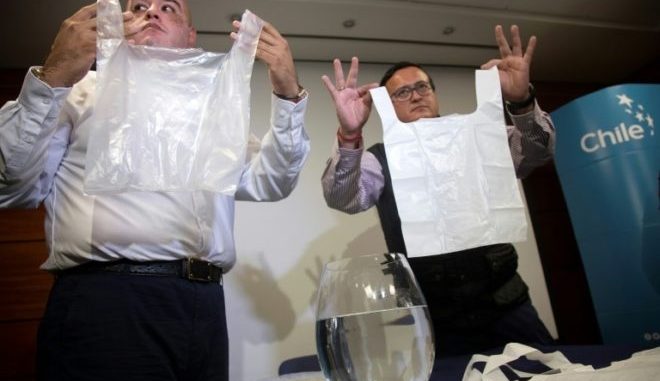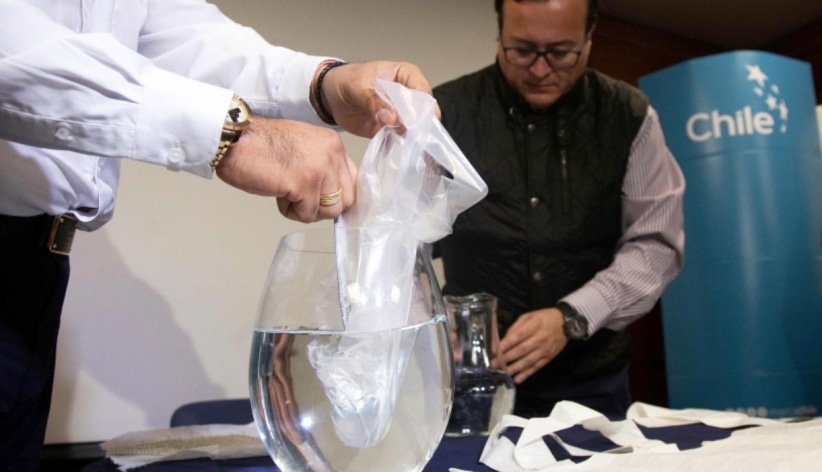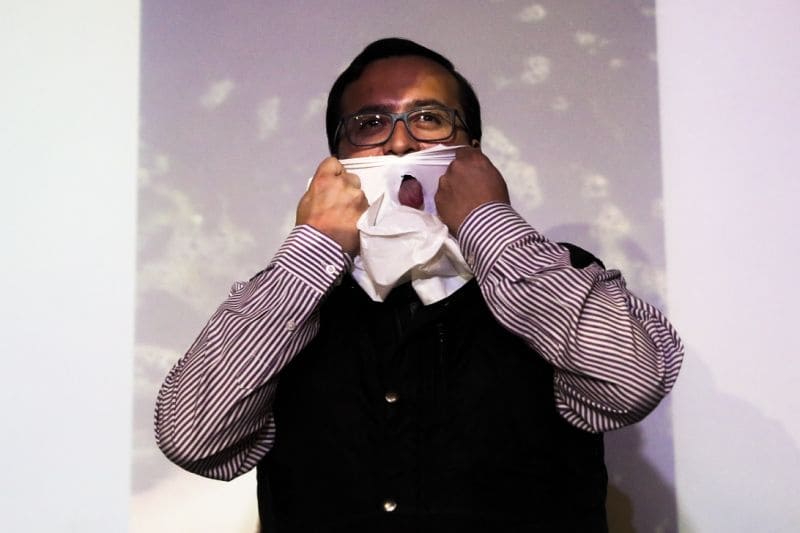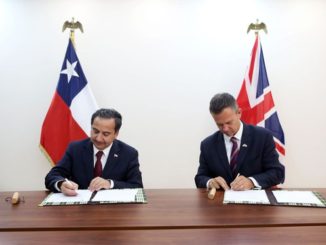
SANTIAGO – With a slight change in the formula of plastic, which allows oil to be replaced by limestone, a group of Chilean entrepreneurs has managed to manufacture plastic bags and reusable cloths that are water soluble and do not pollute.
Roberto Astete and Cristian Olivares, the two architects of this product, began with experiments to manufacture biodegradable detergent, but at the end they found the chemical formula based on PVA (polyvinyl alcohol, soluble in water) and which replaces petroleum derivatives (the cause of the indestructibility of plastics that have been integrated into the food chain of animals that inhabit the oceans and deteriorate the environment).
The general manager and the commercial manager of SoluBag expect to market its products from October in Chile, one of the first countries in Latin America to ban the use of conventional plastic bags by stores.

This week they held a demonstration in Santiago before the press to demonstrate the effectiveness of the new formula and the assurance that the component does not pollute. They also showed the immediate solubility of their plastic bags in cold water or reusable cloth bags in hot water. “What remains in the water is carbon,” said Astete, what medical tests have shown that “has no effect on the human body.”

Astete took a glass, filled it with water where the bag was dissolved and drank it to show that the water remains absolutely drinkable.
“After studying the industry, and considering that around one trillion plastic bags are used per year globally, we realized that the idea of making a daily product based on inputs that were not harmful to our environment, “explained Astete, at a conference organized by Imagen Chile.
“The big difference between the traditional plastic and ours is that it will be between 150 and 500 years in the environment and ours only takes five minutes. You decide when you destroy it,” Astete told the audience, before adding that” today the recycling machine can be the pot of your house or the washing machine”.
The formula allows to “make any plastic material” so they are already working to manufacture materials such as cutlery, plates or plastic containers.
Soluble fabrics in the same hot water used to prepare, for example, a tea or a coffee, are used to make reusable shopping bags or hospital products such as stretcher protectors, gowns and caps for medical personnel and hospital staff, and patients who usually have a single use, explained Cristian Olivares.
And when it rains? Manufacturers can also program the temperature at which both plastic and garbage bags dissolve on contact with water.
Another advantage of their bags is that they are anti-suffocation, an important cause of infant mortality, since it dissolves on contact with the tongue or with tears.

Solubag currently produces in China, but with the mass production, which can be done in the same companies where the plastics come from now – it is enough to modify the formula – the price of their products can be similar to the current ones, according to the entrepreneurs.
In a world in which 311 million tons of plastic were manufactured in 2014 and by 2050 if the course is not changed, more than 1,120 million tons will be manufactured, Astete and Olivares hope to give the client the “empowerment to help decontaminate the environment”. “Because the great advantage is that the user decides when to destroy it, “he says.
Chile set to become first American country to ban plastic bags
The initiative has won the SingularityU Chile Summit 2018 prize as a catalyst for change, which has earned them a 10-week internship for inventors in Silicon Valley starting where they plan to develop the business for the U.S. market and globally.
The company already has international patents in process, certifications and tests, both local and foreign, including the FDA (Food and Drug Administration) contact test, which will allow it to expand beyond Chilean borders and countries where already established, such as China, Colombia, Ecuador, Panama and the Czech Republic.



